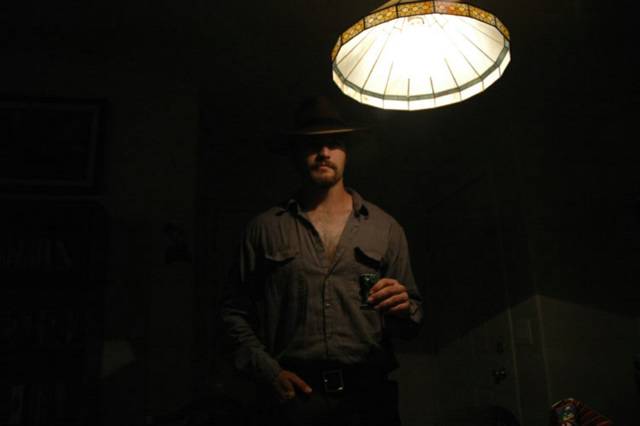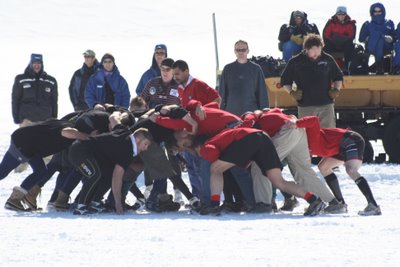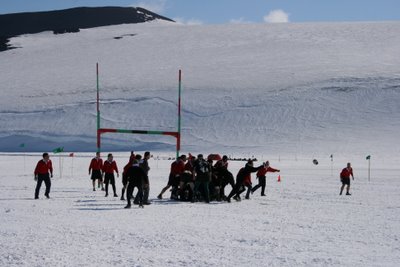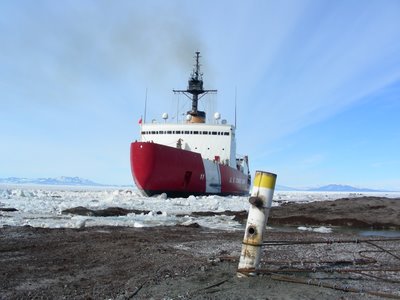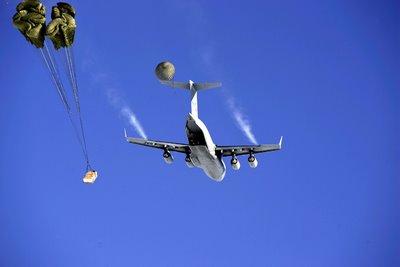Morale Cruise
Due to favorable sea ice conditions, it was decided that there would be an opportunity for a "morale cruise" for up to 400 people on station to board the "Polar Sea" for a 3 hour cruise along the channel that they broke through the ice from the open sea to the station. So last Sunday afternoon I was one of the lucky ones aboard the afternoon cruise as we steamed down and back through the ice. We saw Minke whales and Emporer penguins and of course hordes of Weddell seals. We even got to smash some ice just for fun, although the engines were hardly running at full throttle.
It has been an extrodinarly year for such things; last year the sea ice road to Cape Evans was never opened to recreational travel due to ice conditions, this year we ran nearly 10 trips. Some years penguin sightings are infrequent and distant, this year we have had several occasions where they wander right up close, once through the cargo yard and down the street. And we haven't gotten a morale cruise in years, as the mega-ice-berg B-15 has played havoc with the sea ice. Back in '03 the supply vessel couldn't even reach the station and off load took place over 3 miles of ice away from town. But this year we have been lucky, and it pays dividends. Even though we are all warned not to expect anything resembling a good time or adventure by taking a job here, most of us still hold out some hope, and by giving those of us working mind numbing jobs for slave wages, getting to see a penguin or get out of town and see the real Antarctic for a few hours once in awhile is not only a season highlight, but the experiance of a lifetime for many, and the reward in station morale and retention of employees is huge. And for an outfit facing 60% turnover every year, that means something.



It has been an extrodinarly year for such things; last year the sea ice road to Cape Evans was never opened to recreational travel due to ice conditions, this year we ran nearly 10 trips. Some years penguin sightings are infrequent and distant, this year we have had several occasions where they wander right up close, once through the cargo yard and down the street. And we haven't gotten a morale cruise in years, as the mega-ice-berg B-15 has played havoc with the sea ice. Back in '03 the supply vessel couldn't even reach the station and off load took place over 3 miles of ice away from town. But this year we have been lucky, and it pays dividends. Even though we are all warned not to expect anything resembling a good time or adventure by taking a job here, most of us still hold out some hope, and by giving those of us working mind numbing jobs for slave wages, getting to see a penguin or get out of town and see the real Antarctic for a few hours once in awhile is not only a season highlight, but the experiance of a lifetime for many, and the reward in station morale and retention of employees is huge. And for an outfit facing 60% turnover every year, that means something.



